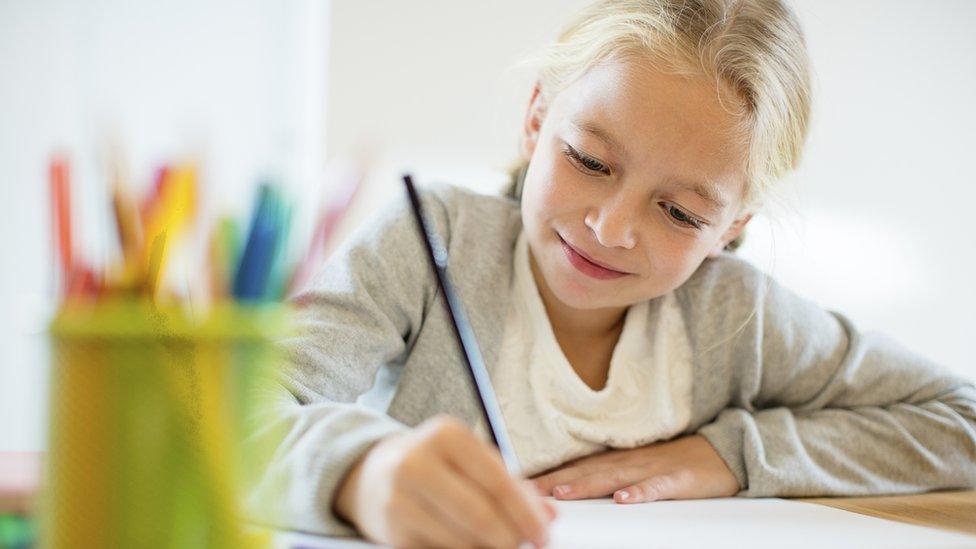Coronavirus lockdown: Creative writing helping children cope
- Published
- comments

Lockdown has inspired children and young people's creative writing, and played an important role in supporting wellbeing during the coronavirus pandemic.
That's according to new research from the children's National Literacy Trust, released for National Writing Day on Wednesday 24 June.
Children and young people said that writing helped them process and cope with feelings of worry, anxiety and uncertainty, with two in five (41%) children and young people saying it made them feel better.
In the study, one in four children (25%) said that writing helps them when they feel sad that they can't see friends and family.
Amy loves writing poetry
Among these children, 66.5% have been writing poems to help them cope better, with around 61% writing in a diary or journal, or a short story or piece of fiction.
The result are based on surveys of young people aged between eight and 18 in the UK, conducted before and during lockdown.
Creative writing gives young people voice and agency - it is brilliant to hear that so many more have discovered that power in the past three months.
Overall, many more children have been putting their writing skills into practice than before lockdown, saying it has given them the inspiration and conditions they need to write more creatively.
Children said this was partly because they've been using digital devices more than they would be at school, and have had more time and space to think and generate ideas.
Frank wrote this special poem about his time away from school during lockdown
The study showed 40% more children have been writing short stories or fiction than they were before lockdown began, and almost as many (39%) have been writing letters.
Diaries and journals and poems have also grown in popularity, with 27% and 21% of children surveyed having had a go.
Poetry top tips with Oliver Lomax
If you're someone who has discovered a new love for writing, why not take part in National Writing Day's #247challenge?
All you have to do is write 24 words in seven minutes about your experiences, starting with the words 'One day...'
Children's Laureate Cressida Cowell and lots of other authors are getting involved in the challenge on social media.
Let us know what you think in the comments.
- Published27 May 2020
- Published8 May 2020
- Published28 February 2018
